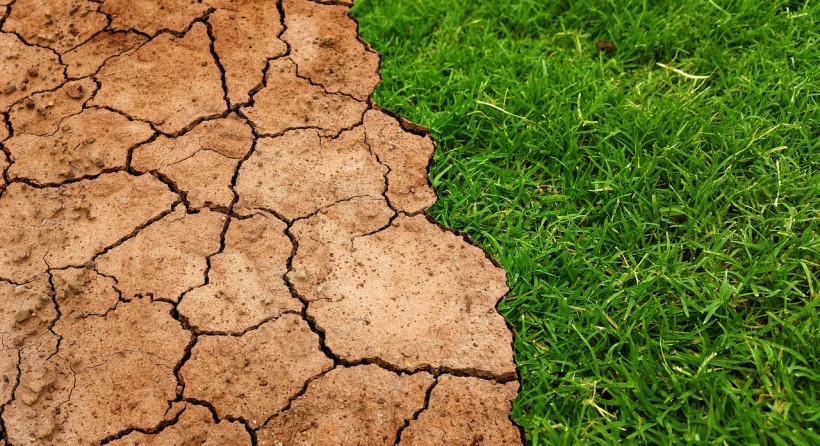The issues about climate change are not coming to a halt in the coming years. Primarily, all living things are witnessing more frequent disasters, calamities, increasing pollution, and other environmental concerns that impact many lives worldwide. With the current prevalence of global warming, some experts predict the possibility of losing supplies of food, water, and other essential resources.
Hence, it's only high time to act now and start initiating baby steps toward improving the environmental condition we have. Every individual can contribute in their own little ways to stop climate change. As climate change news helps people become more aware of this severe issue, everyone must come up with ways to solve it. And since everyone consumes many things and resources that emit carbon dioxide, the slightest thing to do is control or lessen these consumptions.
No matter how big or small your initiative efforts are, everyone, can stop climate change, so try to imply the following ways.
1. Recycle As Much And As Often As You Can
An enormous amount of greenhouse gas is emitted by manufacturing plants every year. The manufactured products people use every day release a certain amount of pollution. Therefore, it's best to recycle supplies and things as much as possible. Recycling is an eco-friendly and cost-effective method of removing waste that doesn't emit greenhouse gases into the environment. Instead of using new materials all the time, look around you and utilize the used items.
For instance, small practices like using printed papers as packages and using mugs or tumblers for your morning coffee can already go a long way. You can gather all your recyclable things at home and sell them or donate them to the recycling centers. A processing plant will convert these items into other recyclable materials.
The less you buy new products, the less waste you generate. And try to opt for eco-friendly products that have been manufactured with recycled materials. Such little effort can already impact the environment significantly.
Bottles, containers, paper bags, and other grocery items can be reused. Skip using things and materials that are not necessary. Not only will they fill more dirt into the landfills, but they will also create clutters in your home. Try to control your consumption by implying the three R's rule: reuse, recycle and reduce.
2. Practice Sustainable Transportation Habits
Try to lessen fossil fuel emissions by using sustainable transportation means instead. Climate change may affect how airplanes fly due to turbulence, while other factors also affect different transportation systems. Don't use your car to drive to work when it's not necessary at all. Some transportation alternatives include carpooling or riding the train or bus instead. You can also practice more physical activities when heading to different locations like riding a bicycle or walking. These will help the environment and make you physically fit and healthy at the same time.
When driving a car, slow down and turn on the cruise control system when traveling long distances. These efforts can save you from using up a lot of gas. Also, when you shop for a new car, you can always go for models and types that are more eco-friendly than conventional ones. Fortunately, many car manufacturers are developing models that no longer use fossil fuels. You can find hybrid or electronic ones that are eco-friendly.
Cars are a significant contributor to climate change, accounting for a massive percentage of transportation-related emissions. However, it's understandable why some people can't break the habit of using cars, especially for those living off the grid. Instead, make a few tweaks to your habits that will create a more significant and positive impact. Keep your car well-maintained, so you can save on your fuel consumption and contribute less to air pollution.
3. Educate Yourself And Encourage Others
It is essential that people educate themselves and others about climate change in today's world. To spread the message, you can utilize many platforms. Using social media or word of mouth is always an excellent way to let others know about the effects of climate change. Fortunately, you can incorporate photos of the environmental damages or videos that have captured how disasters have crushed many lives. These will enable everyone to learn and increase awareness of the gravity of global warming. Climate change can be slowed down by educating others about its dangers and addressing it.
The power of having your own voice is one great advantage to help alleviate the consequences of global warming. Increasing awareness will help many people worldwide, creating more efforts to lessen their consumption and negative environmental impacts.
4. Avoid Using Plastic Bags
Bags made of plastic are harmful to the environment. Nowadays, you can see plastic waste dominating many bodies of water, like the sea, ocean, river, and so on. In effect, sea animals eat plastics, get poisoned, and die. This leaves people with toxic and harmful water, poisoned fish, and seafood that aren't good for the health.
It takes hundreds of years for plastics to decompose, contaminating soil and waterways, and killing marine life in large numbers. Many cities and states have enacted bans on plastic bags or have been carrying out bag fees to discourage consumers from using them. It's best to switch to using eco bags and other reusable containers.
5. Switch To Renewable Sources Of Energy
Solar, wind, biomass, and hydropower are some forms of renewable energy sources. Each of these energy sources is replenished by nature. Unlike fossil fuels, which emit large amounts of greenhouse gases, renewable energy emits no or hardly any greenhouse gases. That makes them more environmentally friendly than fossil fuels. Your efforts to combat climate change and reduce air pollution will be successful if you move away from these traditional sources of energy and go for the following energy alternatives instead:
- Solar
Solar photovoltaic panels installed on your roof can generate electricity for your home. Sunlight is converted into electricity through these panels, allowing you to use it for all your appliances at home.
They can generate energy during daylight hours and are not reliant on the sun's rays to function, although they produce more electricity on sunny days. Batteries are great backup sources of energy that can be used during nighttime for lesser power consumption.
- Wind Energy
The cleanest alternative energy source is wind power. It produces zero emissions and is an excellent provider of renewable energy for houses. With large turbines, people living off the grid can take advantage of this eco-friendly energy resource. Residents can supplement their electricity needs with wind turbines. A house's reliance on the grid can be reduced, thereby decreasing energy consumption.
Property owners can also use wind-powered devices for other purposes. This can be an effective way for industrial farmers or business owners to power up their equipment without harming the environment.
- Air Source Heat Pumps
Using the heat from the outside air, a pump generates heat to produce hot water - similar to a refrigerator, except reversed. The pump can work quietly and is a great environmentally friendly way to heat water in your home. Over time, you can save a lot on heating costs.
6. Utilize Energy-Efficient Products
Using energy-efficient equipment, appliances, and devices in your life can also contribute positively to the environment. When you are in the market to buy a new car, select one that gets good gas mileage. Many appliances like refrigerators and light fixtures are manufactured to be energy-efficient. LEDs are also designed to reduce energy consumption while still providing natural light. When shopping for any device, make sure that they're energy-efficient. This way, you can save on your utility bills and won't contribute much to pollution.
7. Invest In A Smart Thermostat
You can use a programmable thermostat to reduce energy use. Simply adjusting your thermostat up by one degree during winter and one degree down during summer is the easiest and most cost-effective way to cut down on your utility expenses. A smart thermostat is an excellent investment for your home because it ensures that you can effectively control your electricity consumption.
8. Plant Trees
Global warming can be prevented efficiently through reforestation. Trees absorb the carbon dioxide in the atmosphere, so plant more trees to reduce the amount of CO2 in our atmosphere. It is possible to remove roughly two-thirds of all human-made carbon by allowing all forests to grow.
There is no other method to reduce global warming as much as planting trees. The process of photosynthesis gives oxygen and takes in carbon dioxide, which is the leading cause of global warming.
9. Try To Use Less Energy
The best way to prevent pollution is to use less energy. This lessens the amount of energy used by power plants, resulting in reduced greenhouse gas emissions. You can fight off global warming and cut back your monthly electricity bills in many small ways.
You should do your best to reduce your household's energy consumption. As soon as you have finished using your household gadgets and devices, make sure to unplug them and turn the lights off. Practice switching off lights when they are not in use.
Conclusion
It can be challenging to adopt a sustainable life, especially when you don't feel like your actions matter. However, a small step accumulated altogether can still make a huge difference. Global warming is getting severe year by year, so with these efforts mentioned above, you can contribute to helping our planet Earth heal slowly and create a better place to live in for everyone.
© 2024 NatureWorldNews.com All rights reserved. Do not reproduce without permission.
* This is a contributed article and this content does not necessarily represent the views of natureworldnews.com






